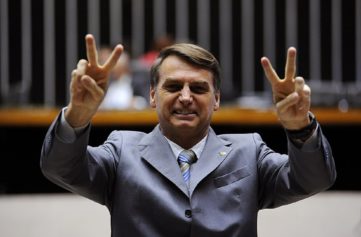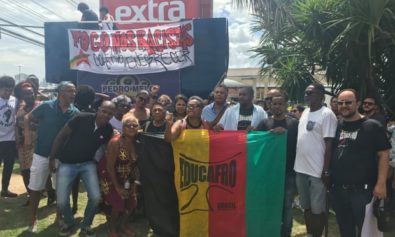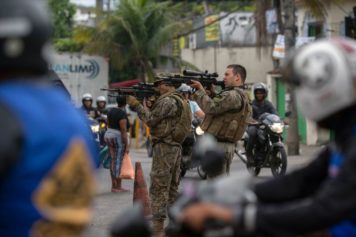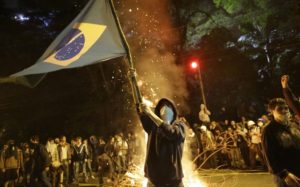
Groups of public and private sector workers have been on strike for days, creating a hectic backdrop for the June 12-July 13 global football championship.
In the southern city of São Paulo, a strike by bus drivers last week generated the worst traffic jams in the history of the city. And on May 21, some 8,000 police marched to the esplanade of ministries in the capital Brasilia, in a protest supported by federal and military police forces.
In the 12 cities that will host the World Cup matches, at least 15 protests are scheduled for the event’s opening day.
Trade unions are taking advantage of the spotlight on Brazil to pressure the center-left government of Dilma Rousseff to meet their demands.
Even workers in over a dozen Brazilian consulates in the United States and Europe, responsible for issuing visas to those interested in flying to Brazil for the sporting event, went on strike last week.
And staff at LATAM airlines – the region’s largest carrier, formed by the merger of Brazil’s Tam and Chile’s Lan – threatened a strike or slowdown that could bring airports to a halt and disrupt hundreds of international flights during the World Cup.
Professors at 90 percent of the country’s federal and state universities and teachers at state and municipal primary schools across the country have also gone on strike, while many public cultural foundations and museums have closed their doors.
“A general strike hasn’t been ruled out,” Sergio Ronaldo da Silva, secretary general of the main federal workers’ union, CONDSEF, told IPS.
“This isn’t all happening because of the World Cup,” he said. “We had been talking for a long time about going on strike. Our complaints aren’t connected to the championship – they are demands we have been voicing for years.”
If the situation remains unchanged, this country of 200 million people could grind to a halt during the World Cup, Ronaldo da Silva admitted, after pointing out that the authorities have not set a date for negotiations. He added that as the opening match approaches, relations could become even more tense.
“The federal government should have foreseen this scenario,” the trade unionist said. “They want to show the image of Brazil as a first world country, but our health system is almost broken down, and the same thing is true of education and public transport.”
CONDSEF represents around 80 percent of Brazil’s 1.3 million federal public employees.
“ The government has been hearing the message since last June’s protests,” Ronaldo da Silva said.
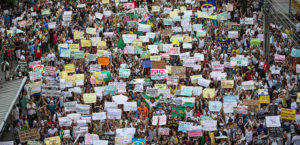
But at that time, the projected inflation rate was much lower than today’s rate of 26 percent, the unions complain. “Of the agreements that were signed, 70 percent are not being fulfilled,” said Ronaldo da Silva.
Another problem facing the public sector is the exodus of public employees. In the latest recruitment process, in 2011, 240,000 were hired – and nearly half have already left their jobs, according to CONDSEF.
Since February 2012, legislators have been discussing proposals for preventing strikes during the World Cup. Draft law 728/2011, currently under debate in the Senate, would limit strikes ahead of and during the global sporting event.
Under the bill, unions organizing a strike would have to announce it 15 days ahead of time, and 70 percent of workers would have to remain on the job.
Read the full story at caribbean360.com
